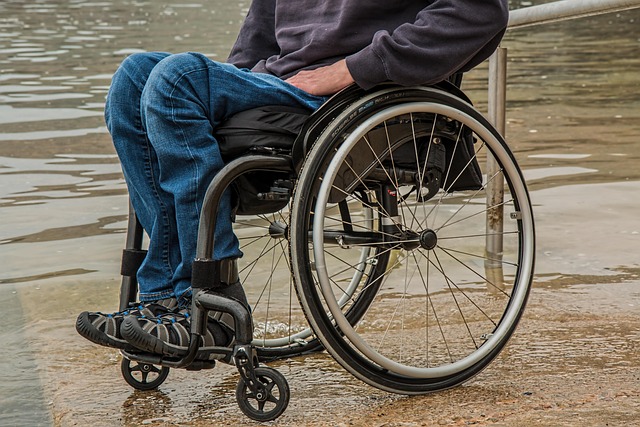LGBTQ+ individuals face unique challenges accessing appropriate mental health and substance abuse treatment due to lack of catering from mainstream groups. Specialized substance abuse treatment centers with LGBTQ+ support offer safe spaces, peer-led support groups, and inclusive environments that address internalized stigma and discrimination, enhancing recovery. Online platforms provide discreet connections and coaching, while tailored early sobriety initiatives ensure comprehensive care. These strategies empower LGBTQ+ individuals to overcome addiction within a supportive network.
Peer-led support groups are transforming lives within the LGBTQ+ community, offering a safe haven for individuals to share experiences and gain insights. This article delves into the critical role of these groups, focusing on three key areas: understanding the unique needs of LGBTQ+ individuals in substance abuse treatment, exploring the benefits of peer-led meetings, and providing strategies for creating inclusive environments in centers catering to this community. Discover how these initiatives foster healing and support within a welcoming space.
- Understanding the Need for LGBTQ+ Focused Support Groups
- Benefits of Peer-Led Meetings in Substance Abuse Treatment
- Creating Inclusive Environments: Strategies for LGBTQ+ Friendly Centers
Understanding the Need for LGBTQ+ Focused Support Groups

In today’s digital era, it’s crucial to recognize that LGBTQ+ individuals often face unique challenges and barriers when seeking support for mental health and substance abuse treatment. Many mainstream support groups may not adequately address the specific needs of this community, leaving a gap in their recovery journey. This is where LGBTQ+-focused support groups come into play, offering a safe haven tailored to foster open dialogue and understanding.
The need for specialized groups is evident when considering the impact of stigma and discrimination on mental well-being. LGBTQ+ individuals may struggle with internalized homophobia, transphobia, or biphobia, which can lead to isolation and a lack of trust in support systems. Substance abuse treatment centers with LGBTQ+ support recognize this and aim to provide inclusive environments, ensuring that every member feels accepted and valued. Online recovery support groups and mental health help platforms have also emerged as valuable tools, offering discreet spaces for individuals to connect, share experiences, and receive healthy relationships coaching in early sobriety. These initiatives contribute to a more comprehensive and effective approach to healing.
Benefits of Peer-Led Meetings in Substance Abuse Treatment

Peer-led support groups offer a unique and powerful approach within substance abuse treatment centers, particularly those catering to the LGBTQ+ community. By facilitating these meetings, peers equipped with Crisis Intervention Training can create an environment that fosters trust and understanding. This is especially beneficial for individuals navigating complex challenges related to addiction while also addressing discrimination or exclusion they may face based on their sexual orientation or gender identity.
In these settings, members gain a sense of belonging and solidarity. They share personal experiences, offer encouragement, and provide valuable insights into managing cravings and relapses. Moreover, peer-led meetings enhance coping strategies, stress management skills, and resilience. Regular participation in such groups can significantly contribute to long-term sobriety support, ensuring individuals in recovery feel empowered and better equipped to maintain their journey towards addiction freedom.
Creating Inclusive Environments: Strategies for LGBTQ+ Friendly Centers

Creating inclusive environments is paramount for substance abuse treatment centers aiming to cater to LGBTQ+ individuals. This involves implementing strategies that ensure every member feels seen, respected, and welcomed. For instance, offering dedicated support groups facilitated by peers who identify as LGBTQ+ can foster a sense of community and understanding. These spaces provide a safe haven where individuals can share their experiences without fear of judgment or discrimination, enhancing the effectiveness of treatment.
Incorporating LGBTQ+-specific resources, such as educational materials and staff training on LGBTQ+ issues, further contributes to an inclusive atmosphere. Additionally, promoting healthy habits in early sobriety—including initiatives like healthy sleep habits coaching—can be tailored to meet the unique needs of this demographic. By integrating Co-occurring Disorder Treatment Options and emphasizing the importance of healthy habits, these centers can offer comprehensive care that addresses both mental health and substance abuse concerns within a supportive, LGBTQ+ friendly environment.
Peer-led support groups play a pivotal role in creating inclusive environments, especially within substance abuse treatment centers catering to LGBTQ+ individuals. By fostering safe spaces for sharing experiences and insights, these groups enhance the benefits of treatment, promote healing, and empower members to navigate life’s challenges with resilience and support. Incorporating LGBTQ+-focused initiatives into treatment centers is essential to ensuring comprehensive care and addressing the unique needs of this community.






